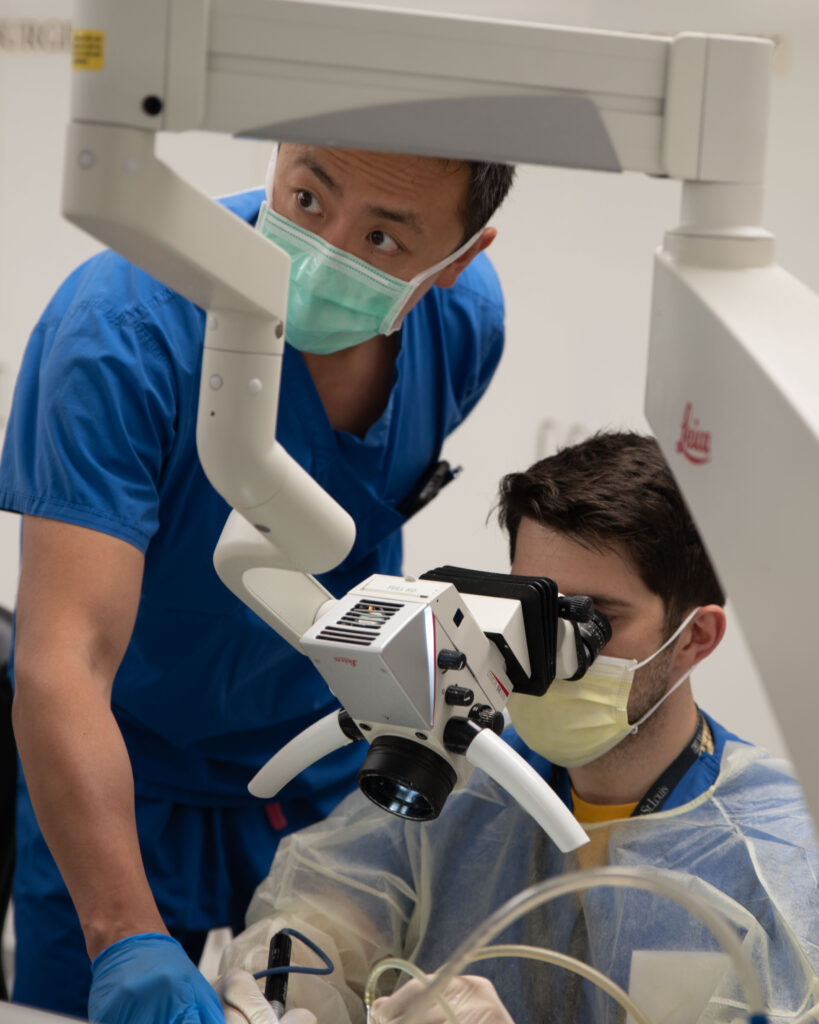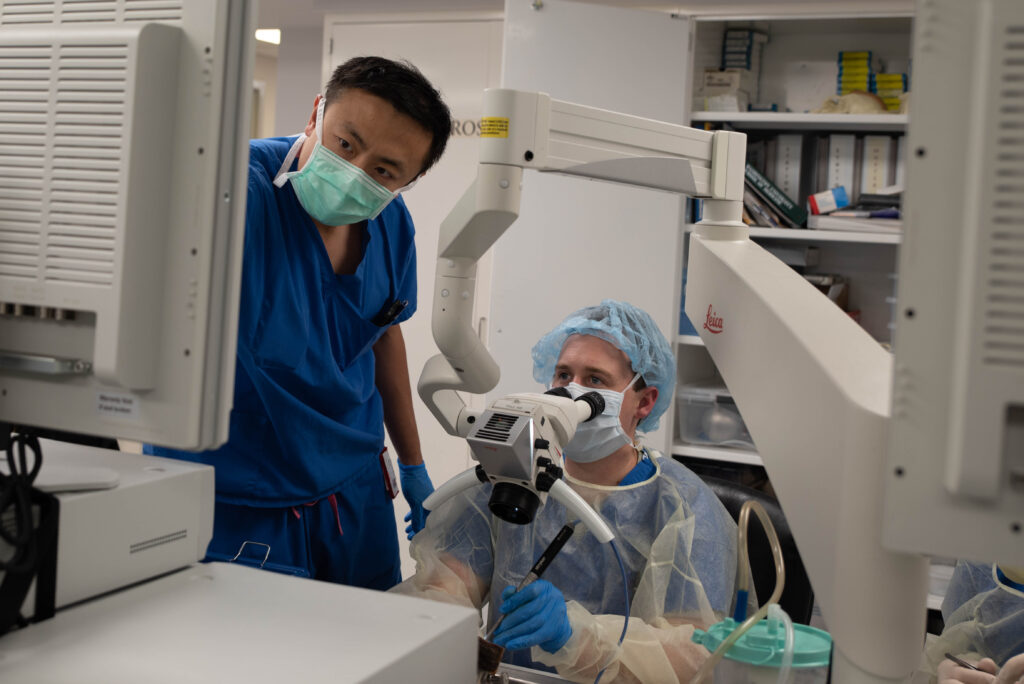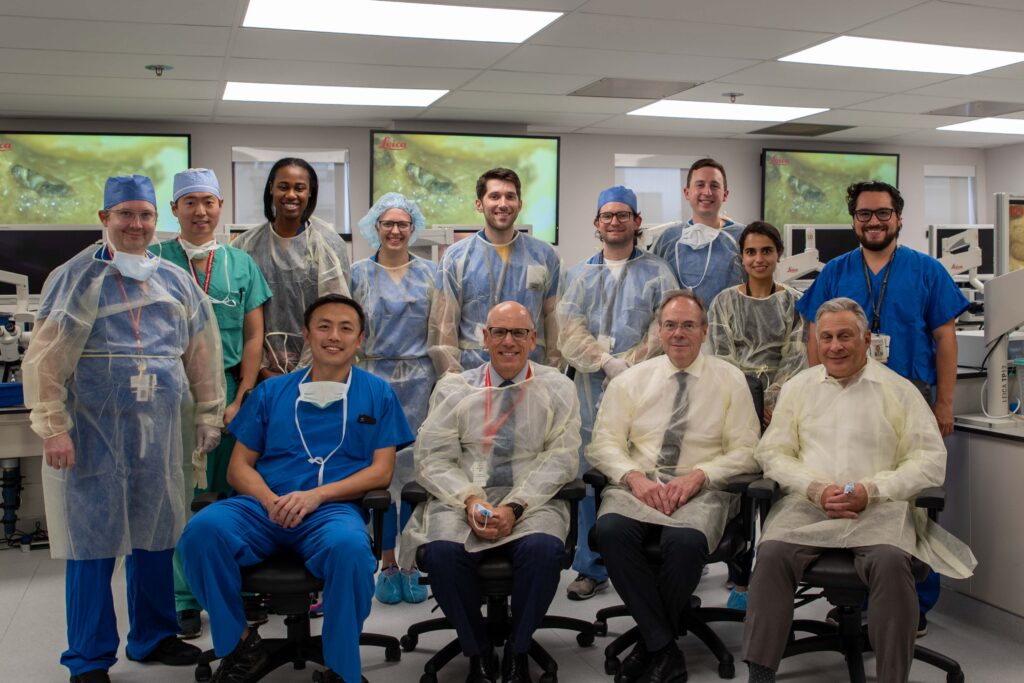As Kevin Zhan, MD, enters the second year of his neurotology fellowship, he shares his thoughts on the importance of a trainee also serving as trainer.

Why did you pursue a fellowship in neurotology?
I pursued otology and neurotology simply because I love ear and lateral skull base surgery, and I’m passionate about hearing healthcare. I find the clinical work extremely rewarding, especially the collaborative nature with other disciplines. The ongoing science is also always exciting to read about.
As an advanced surgical trainee, how do you spend most of your time?
I’m really grateful to my faculty that grant me the flexibility in my own scheduling, allowing me the ability to tailor my education to my current needs. I’m prioritizing more clinic in my second year of fellowship and now have the opportunity to staff the Veterans Administration clinic and operating room one day a week. This has been an outstanding addition to the fellowship that has afforded increased autonomy with clinical care and teaching duties.
You seem to spend a lot of time helping train residents. What does being in a teaching role mean to you?
I’m very grateful to have had wonderful teachers throughout my own training, people who have graciously donated their time to mentor me and share the immense privilege of taking care of patients. When I take the time to work with our current residents, that is simply my way of paying that gift forward. I think otology can come across as a bit esoteric at times. It shouldn’t be that way, so long as everyone feels included, involved, and learning at the same time.

How would you describe the training environment here, for both fellows and residents?
WashU ENT is one of the most auspicious learning environments in the country. It’s all here: clinical volume, clinical diversity, outstanding and diverse teachers, research infrastructure, world-class simulation facilites, superb collaborators, and more. It leaves very little to be desired. To top it off, Kristin Vierling has been the most incredible fellowship coordinator; I’m eternally grateful for her role in my training.
What are your career plans?
I hope to pursue an academic position and take care of the whole gamut of otology and neurotology patients, both children and adults!
